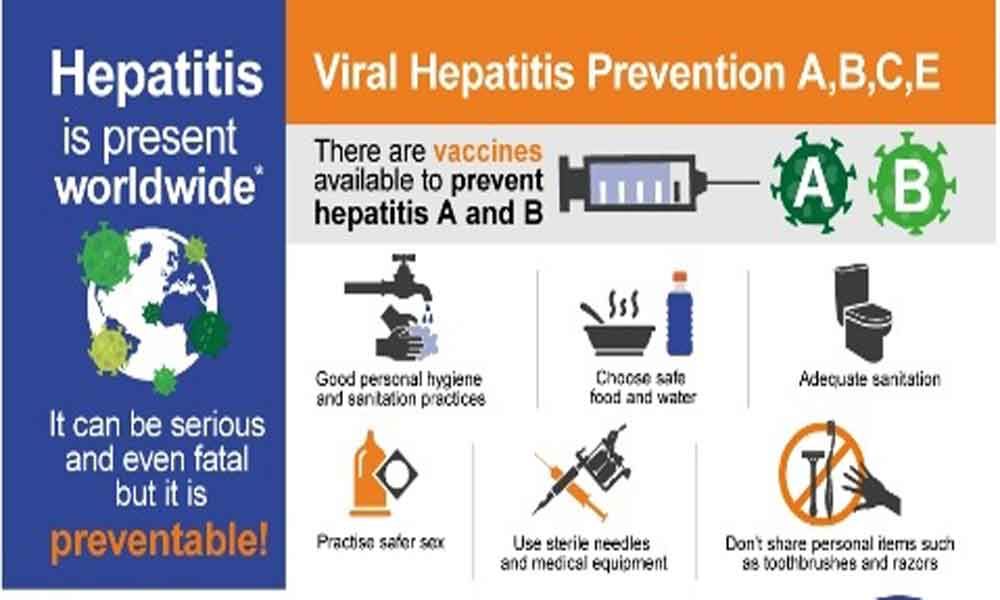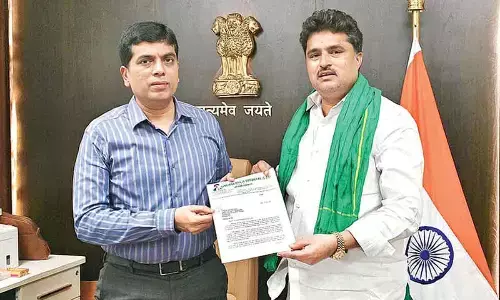Hepatitis cases see a spurt in city

Sharp rise in Hepatitis B and C cases has been reported in the over last two years. According to the data of Health and Family Welfare department of Telangana, 140 cases were registered so far in 2019 in the state.
Hyderabad: Sharp rise in Hepatitis B and C cases has been reported in the over last two years. According to the data of Health and Family Welfare department of Telangana, 140 cases were registered so far in 2019 in the state. Among them, Hyderabad alone accounted for 84 cases in the last 6 months, whereas 72 cases were registered in 2018.
Hepatitis B and C are on the rise due to lack of surveillance procedures used to test blood during donation and surgeries in the city, say experts. "Two years ago, I used to treat two or three cases in a month. Now I treat around 40 cases per month," says Dr Saratchandra, Senior Consultant Gastroenterologist, Apollo Hospitals.
Hepatitis A and E occur due to poor sanitation and unsafe water. Overall in the state, hepatitis B is seen decreasing because of vaccination. But in the city, hepatitis B and C cases have been on the rise because of lack of surveillance procedures used to test blood during donation, surgeries etc. Next most important reason is lack of sterilisation, especially during dental procedures and endoscopy, which is spreading the ailments in the city.
In India, as per latest estimates, 40 million people are chronically infected with hepatitis B and 6 to 12 million people are chronically infected with hepatitis C. HEV is the most important cause of epidemic hepatitis. It is is more common among children. Most acute liver failures diagnosed are attributable to HEV.
Hepatitis A and hepatitis E are usually transmitted through contaminated water. So, care needs to be taken to cook food and boil water thoroughly before consuming. Washing hands with soap and water before cooking or eating and after visiting toilets also helps the matter a lot.
Hepatitis B and C are mainly transmitted through infected blood unprotected sex. One needs to get vaccinated against hepatitis B. Immunisation of hepatitis B should be given as birth dose, particularly in cases of all high-risk groups and healthcare workers. The hepatitis B vaccine is 98-100% effective in preventing new infections. For hepatitis B, people should be tested and if found positive and eligible and provided with lifelong treatment, say medical experts.
For hepatitis C, people can be cured with a simple 2-3 month treatment with direct acting antiviral (DAA) drug. Safe socio-cultural practices like use of condoms during sex, not sharing toothbrushes and nail clippers and, needles, asking for blood or blood products to be screened for hepatitis B and C should be followed, according to doctors.











